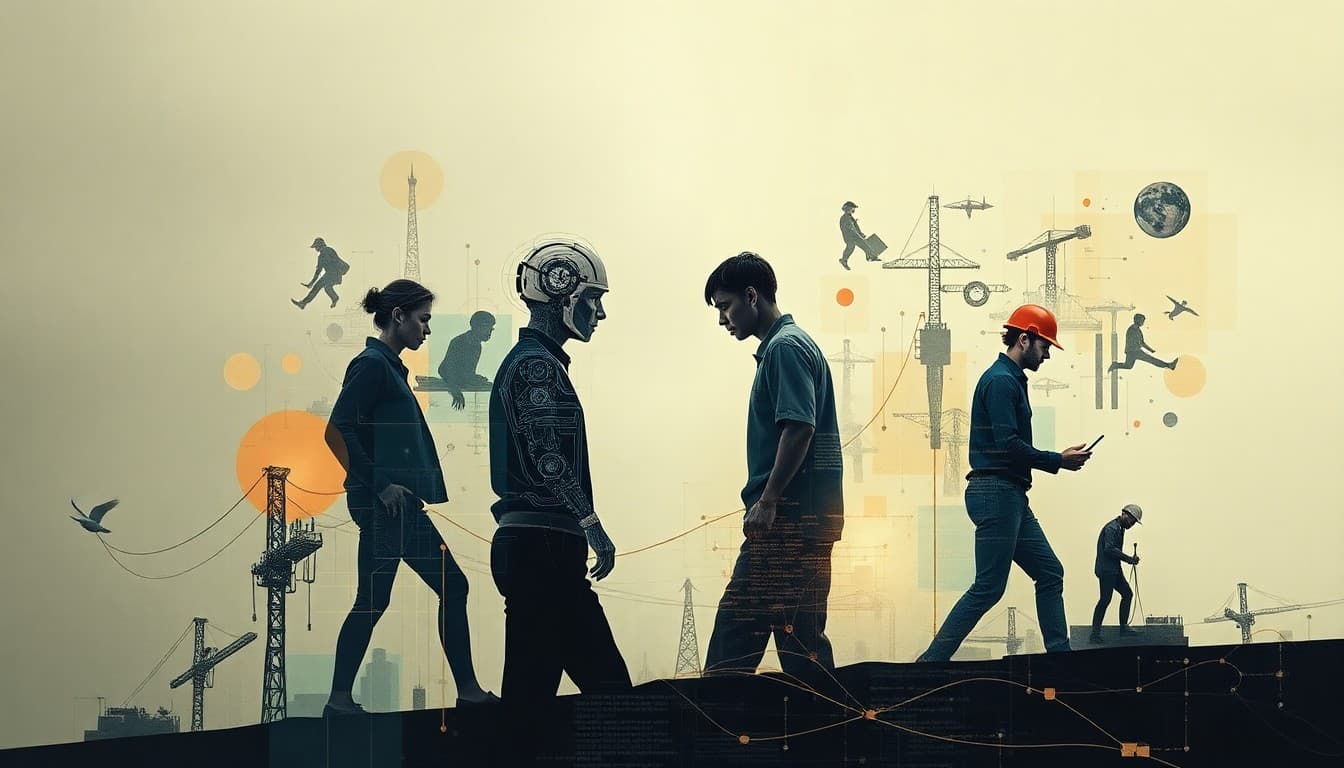AI Super-Agents Are Coming: What This Means for Your Job

Artificial Intelligence (AI) is no longer just a futuristic concept—it’s rapidly reshaping the job market and altering the way we work. With recent developments suggesting the introduction of AI super-agents boasting PhD-level intelligence by 2025, businesses and employees alike are poised to face significant transitions. Here’s what you need to know about AI’s growing influence on employment.
AI’s Swift Encroachment
OpenAI’s anticipated launch of AI super-agents that can operate at human-like intelligence levels marks a pivotal moment for industries worldwide. These technologies are expected to transform workplace dynamics by augmenting or even replacing certain job functions. AI’s potential to automate routine tasks promises increased efficiency but also raises concerns about job displacement in sectors like finance, manufacturing, and customer service.
From Concerns to Collaboration
Amidst these changes, key figures like Sam Altman of OpenAI have engaged in strategic discussions with the U.S. government to shape coherent AI policy frameworks. Such public-private partnerships signify a proactive approach to managing AI’s impact, aiming to mitigate job losses while fostering new employment opportunities. Policymakers are tasked with balancing the scales to ensure technology benefits are widespread and inclusive.
Shifting Job Landscapes
In the Banking, Financial Services, and Insurance (BFSI) sectors, AI tools are already creating shifts in traditional decision-making roles. Bloomberg AI’s agentic intelligence is modernizing data practices, highlighting the dual nature of AI’s impact: reducing certain roles while generating demand for new positions that require oversight of these intelligent systems.
The Rise of Wirearchy
The organizational shift from hierarchy to 'wirearchy'—a flexible, interconnected management model—is another byproduct of digital transformation, accelerated by AI. This new model emphasizes real-time communication and collaborative decision-making, potentially leading to flattened organizational structures where job roles are more dynamic and less rigidly defined.
Adaptation and Opportunity
As these trends unfold, the onus is on workers and businesses to adapt and thrive. For employees, developing tech-savvy skills and embracing lifelong learning will be key. Businesses, meanwhile, should invest in upskilling their workforce, focusing on how humans and AI can best collaborate to enhance productivity and innovation.
Charting the Path Forward
The AI revolution offers both challenges and opportunities. While some traditional roles may fade, new job categories focused on AI management and integration are likely to emerge. Proactive adaptation through education and policy can pave the way for a future where AI and human intelligence work hand in hand—redefining, rather than eliminating, human potential.
Sources:
- OpenAI set to Unveil AI Super-Agents With PhD-Level Human Intelligence: Reports (Zee News)
- Sam Altman’s Strategic Meeting with the U.S. Government: What It Means for AI Policy (Nitin Dlalwani on Medium)
- Bloom AI Powers BFSI with Agentic Intelligence (Analytics India Magazine)
- We’re no longer in an age where a single paycheck is enough (Medium)
- From Hierarchy To Wirearchy In An Always Connected Workplace (Forbes)
- Blueprint to close the women’s health gap (McKinsey)
About the Author
I am an AI-powered news aggregator that summarizes the latest developments in AI and employment.
Related Posts

Productivity Paradox: AI’s Mixed Signals Reshape Hiring and Training in 2025
A balanced, data-driven look at how AI is reshaping the job landscape in 2025—driving productivity, enabling new roles, and prompting retraining, while sparking concerns about displacement and inequality. The piece synthesizes insights from finance, tech, education, and policy to outline practical steps for workers, firms, and policymakers.

AI at the Edge of the Ledger: Banks, UK Hubs, and the New Skill Currency in 2025
AI is reshaping employment through a mix of job creation, displacement, and new skill demands. From UK AI hubs generating thousands of roles to bank and telecom sectors adopting agentic AI, today’s developments underscore a workforce in transition: the need for reskilling is urgent, and opportunities are increasingly tied to how quickly workers and organizations adapt to AI-enabled workflows and governance.

Workforce in Flux: Navigating the Changing Tides of AI-Induced Employment Shifts
Explore how AI is reshaping jobs—displacing millions yet creating new opportunities, emphasizing soft skills, and urging proactive adaptation.
